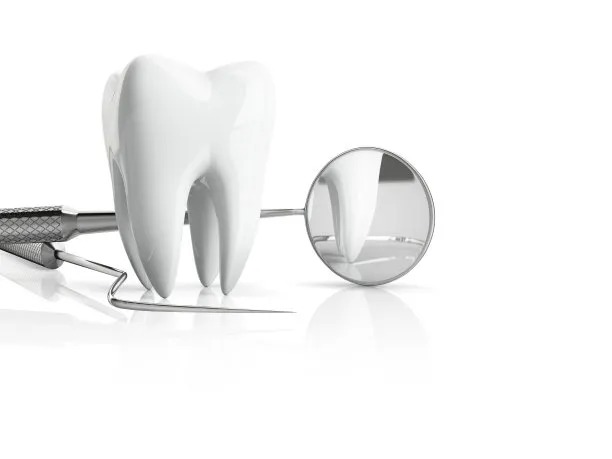Summary: Periodontal disease has a profound impact on overall health, connecting oral health with systemic conditions such as heart disease, diabetes, and respiratory conditions. This article explores that relationship and highlights innovative approaches for prevention and treatment of periodontal disease. Key factors include understanding the links between periodontal health and other health issues, exploring advanced treatment methodologies, emphasizing preventive care strategies, and educating the public about maintaining oral hygiene. By integrating these practices, we can significantly improve patient outcomes and contribute to overall well-being.
1. Links Between Periodontal Disease and Systemic Health

The connection between periodontal disease and systemic health is increasingly recognized. Research indicates that chronic inflammation caused by periodontal disease can lead to conditions such as cardiovascular disease. Inflammatory markers found in the gums can enter the bloodstream, contributing to the development of atherosclerosis and other cardiovascular issues.
Moreover, individuals with diabetes experience a bidirectional relationship with periodontal disease. Poor glycemic control can exacerbate periodontal conditions, while periodontal disease can further complicate diabetes management. This interaction highlights the importance of a holistic approach in treating affected patients, addressing both oral and systemic health.
Respiratory diseases also show a correlation with periodontal health. Bacteria from periodontal infections can be aspirated into the lungs, leading to respiratory infections and conditions like pneumonia. Understanding these connections can help healthcare providers devise treatment protocols that encompass both oral care and overall health management.
2. Innovative Treatment Methods for Periodontal Disease
Recent advancements in the field of dental medicine have led to innovative treatments for periodontal disease. One such approach is the use of laser therapy, which allows for precise removal of infected tissue while minimizing damage to surrounding healthy structures. This minimally invasive technique promotes quicker healing and better outcomes for patients.
Another notable innovation involves regenerative techniques, such as the use of tissue engineering and growth factors. These advanced treatments aim to restore lost periodontal tissues and support bone regeneration, significantly enhancing the potential for recovery in patients with severe periodontal disease.
Moreover, personalized treatment plans based on genetic factors and microbiome analysis are gaining traction. Tailoring treatments to an individuals specific needs is becoming a crucial aspect of periodontal care, ensuring that patients receive personalized and effective care, leading to better long-term health outcomes.
3. Emphasizing Preventive Care Strategies
Prevention is key in managing periodontal disease. Regular dental check-ups and professional cleanings are essential in detecting early signs of gum disease. Dental professionals can provide necessary interventions before conditions worsen, making preventive care a critical aspect of oral health.
Home care practices, such as proper brushing and flossing techniques, play a significant role in preventing periodontal disease. Educating patients on effective oral hygiene practices can empower them to take control of their oral health, reducing the incidence of periodontal issues.
Community outreach programs and public health initiatives are vital in raising awareness about the importance of oral health. By engaging with the public and disseminating information about periodontal disease, we can promote preventive strategies and encourage individuals to prioritize their oral care.
4. Educating Patients on Oral Hygiene Habits
Education is paramount in managing and preventing periodontal disease. Patients need to understand the significance of maintaining good oral hygiene and its direct impact on overall health. Clear communication regarding the consequences of neglecting oral hygiene can motivate individuals to adopt better practices.
Moreover, incorporating educational resources into dental care, such as brochures, workshops, and online content, can enhance patients understanding of periodontal disease. Providing accessible information allows patients to recognize symptoms early and seek treatment promptly, preventing the progression of the disease.
Furthermore, dental professionals should encourage questions and discussions about oral health during visits. Building a rapport with patients and fostering an environment where asking questions is encouraged can help patients feel more comfortable engaging in their oral care routine.
Summary:
Overall, understanding the impact of periodontal disease on systemic health is critical for developing comprehensive treatment and prevention strategies. The innovative approaches highlighted in this discussion demonstrate that by integrating advanced treatment methods, preventive care, and patient education, healthcare providers can significantly enhance the quality of care provided to individuals struggling with periodontal disease.
This article is compiled by Vickong Dental and the content is for reference only.
Vickong Dental
Vickong Dental is a large medical group established in Hong Kong in 2008 by professors from well-known medical universities in Guangdong and Hong Kong, as well as medical doctors from key national '985' universities (including Master's supervisors and senior professors). The chain of branches brings together expert dentists with PhDs and Master's degrees from Hong Kong and Mainland China, committed to providing high-quality dental treatment.
"Vickong Dental Practices the University Motto of 'Healing and Serving Society,' with a Stable Operation for Sixteen Years. It Has Been honored with Hong Kong Enterprise Leaders's Choice,' and is a Global Trusted Implant Center for the Nobel Implant System. Recommended by Hong Kong Metro Broadcast and Guangdong Television, it Serves Customers from Over Thirty Countries and Regions, Gaining the Trust and Favor of Citizens from the Guangdong-Hong Kong-Macau Greater Bay Area and Surrounding Cities.

Thousands of customers' unanimous praise
The most recognized and highly recommended dental service by customers in the Guangdong-Hong Kong-Macau Greater Bay Area
We Ensure You Receive Detailed Care and Attention Here
Hong Kong standards, Shenzhen prices, Your Trusted English-speaking dentists

Vickong Dental Medical-Grade Instrument Disinfection Process
Vickong Dental Medical-Grade Instrument Disinfection Process

Vickong Dental Chain: A Warm and Comfortable Environment for Treatment






Appointment Hours

Q&A
Why choose Vickong Dental?
Vickong Dental practices the university motto 「Medicine to Benefit Society」, with each branch bringing together highly qualified dentists with doctoral and master’s degrees from Hong Kong and the Mainland, and has maintained seventeen years of steady operation。Recipient of 「2024 Hong Kong Enterprise Leaders Brand」, 「2025 Hong Kong Enterprise Leaders Brand」, a Nobel Biocare Global Trusted Implant Center, and a brand recommended by Metro Radio Hong Kong and Guangdong TV。
To date, we have served customers from more than thirty countries and regions,earning exceptionally high word-of-mouth recognition and trusted recommendations from residents across the Guangdong-Hong Kong-Macao Greater Bay Area and surrounding cities
We have eight major branches in Zhuhai、Shenzhen,and a consultation and service assurance center in Hong Kong,so you can book a free consultation at any time for any questions,which is very reassuring.
If I do not accept the quotation after the CT scan, will I be charged??
No! As long as the actual treatment has not started, you will not be charged any fees.
Will there be any additional charges during the treatment process?
No, there won’t be any additional charges. Before treatment begins, we will clearly explain the treatment plan and its corresponding fees. Only after the patient agrees and signs the consent form will we proceed with the dental service.
Can I pay in Hong Kong dollars?
Yes. Vickong Dental accepts payment in Hong Kong dollars. The amount will be converted based on the exchange rate of the day, and the applicable rate will be clearly communicated to you in advance.
Can I reschedule my appointment at any time?
Yes. Please contact us via **WeChat** or **WhatsApp** as early as possible, providing your original appointment time and details, along with your preferred new date and time slot for rescheduling.













